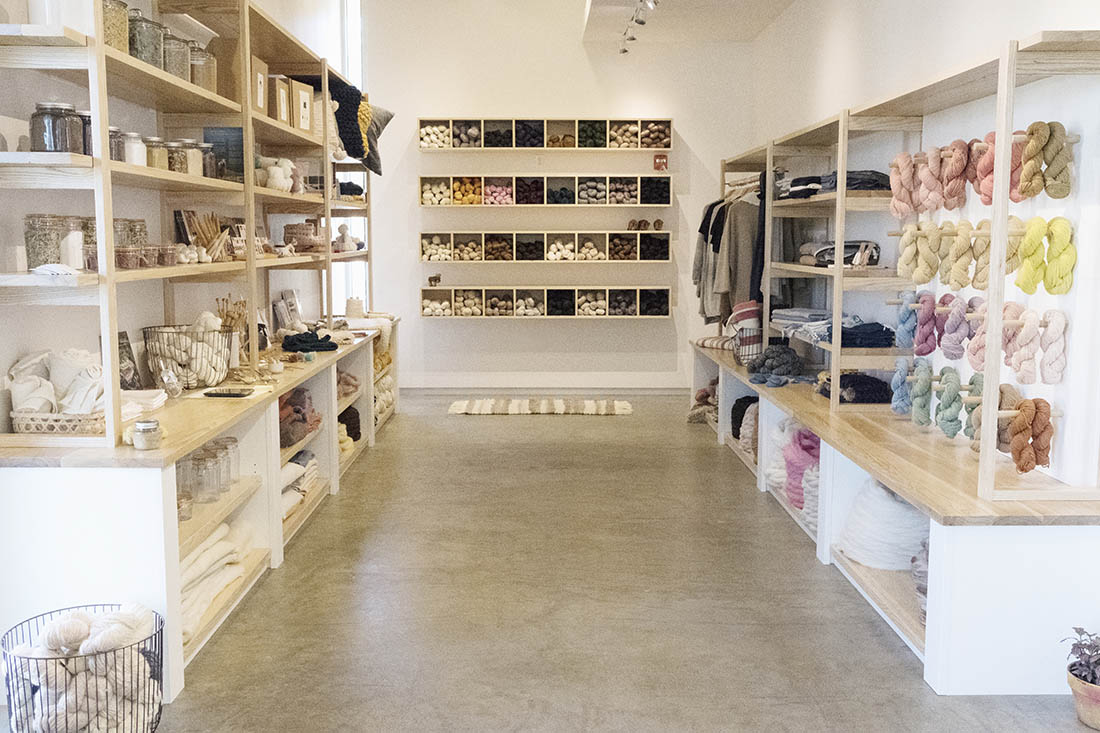
Ecoview Fiber Mill.
Photos courtesy of Nicole McConvilleMost makers who work with fiber love the idea of supporting local. But usually, makers don’t have the resources they need to process fiber purchased directly from a farm. That’s where Echoview Fiber Mill comes in.
If you’re ever lucky enough to visit Echoview Fiber Mill in Weaverville, North Carolina, be warned: You will want to touch everything in the shop. Squish the soft yarns that line the shelves. Pet one of the adorable dogs—sometimes as many as five at a time—that roam the building. If it’s craft night, cuddle up with a knitting project on the couch between giant chunky-knit pillows. You will never want to leave.
Echoview Fiber Mill is so much more than just a mill. We spoke to the company’s brand strategist Grace Casey-Gouin about its evolution and its exciting future.
The launch
Echoview founder Julie Jensen was working as a lawyer when she happened upon the future Echoview property by complete accident while helping a friend look for property in North Carolina. Jensen had been a fiber lover since college and a knitter since childhood, interested in everything from natural dyeing to weaving and knitting. When she saw the farm property, an idea sparked and she couldn’t let it go.Echoview Farm came first around 2005, followed by Echoview Fiber Mill a few years later. The farm and mill are two separate businesses that work together, with the farm providing the mill with fiber to produce its knitting and weaving yarn made of natural fibers like wool, alpaca, silk, mohair, and organic cotton.After running the farm and mill as two separate businesses, though, Jensen has recently decided to sell the farm’s property so she can focus on her family and the mill. “Maintaining two small businesses is no small feat,” says Casey-Gouin. But the mill has plenty of other sourcing options. “While we will miss getting mohair and alpaca fiber from right across the road, we are very excited to be able to continue to support other small farmers,” Casey-Gouin tells us.
Changing its business model
Supporting small farmers was actually how Echoview Fiber Mill began. When the mill first opened, its business model was simple: process fiber for farmers and send the yarn right back to them. But this model didn’t work for several reasons. One reason is that most of these farmers were small hobby farmers, which made it difficult to support the business financially.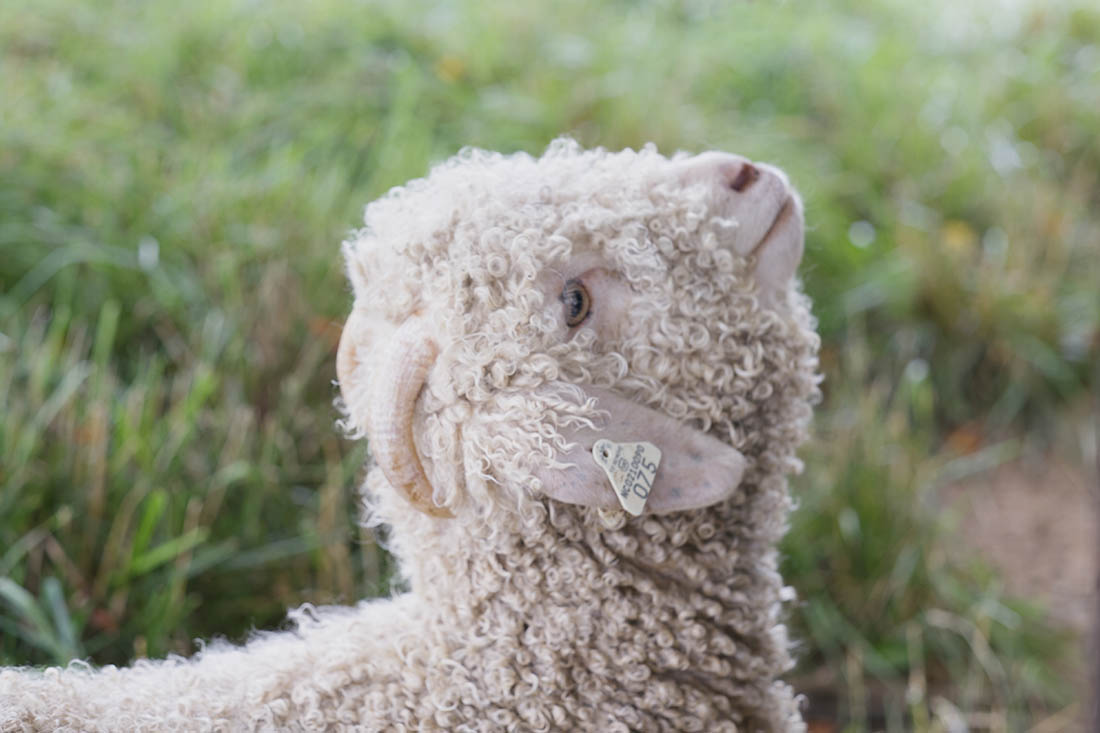
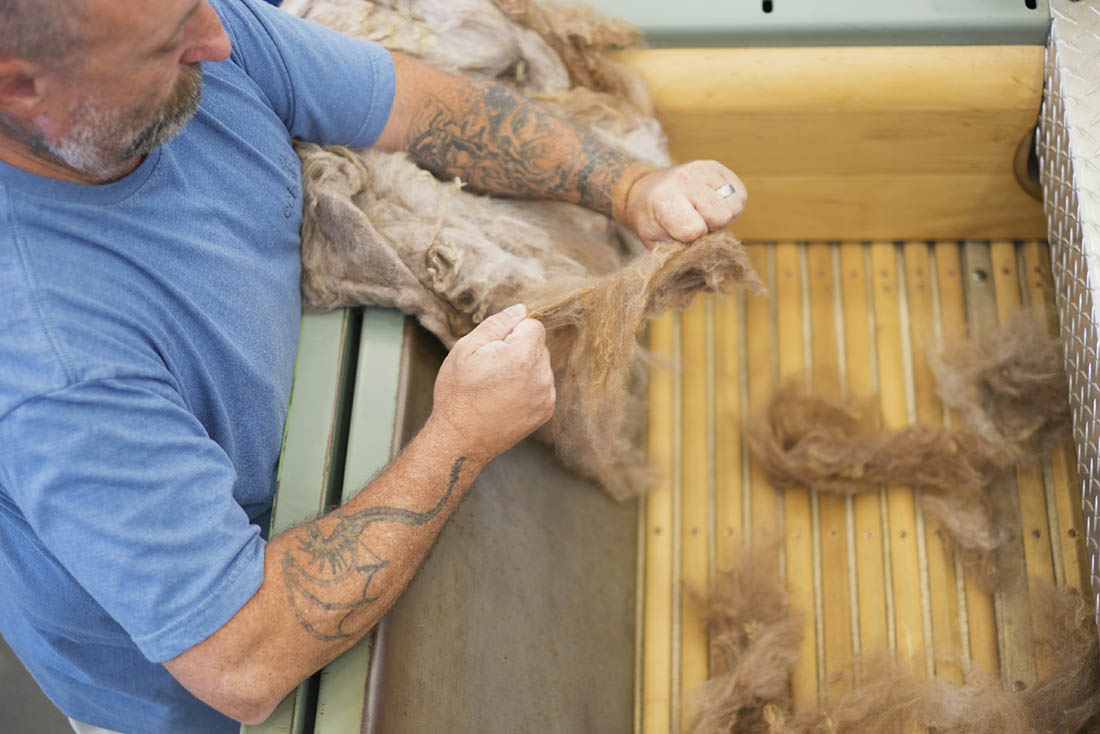
Another issue is that farmers were not always pleased with the resulting yarn. “Not all fiber is automatically amazing,” says Casey-Gouin. “When a customer didn’t like the way their fiber felt in yarn we can apologize, but we cannot ask our team to work for free because someone thought their 33-micron sheep would feel like superfine merino.”
Efficiency was another reason this business model didn’t work well. “It takes us as much time to prepare for a 5-pound order as it does for a 50-pound order,” Grace says. “We work more efficiently when we can make larger batches of yarn.”
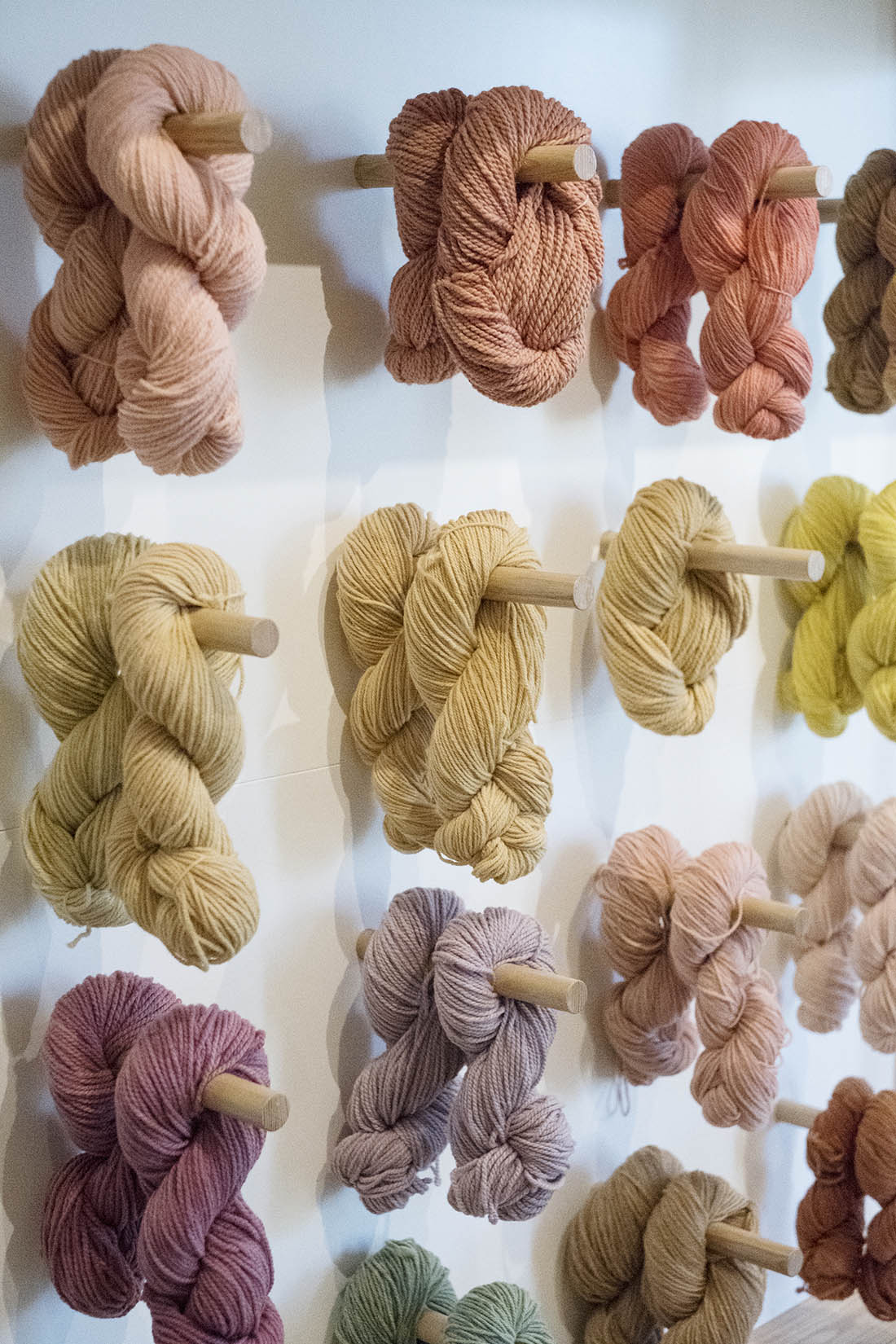
Instead, Echoview began buying local fiber directly from farmers and then grading, storing, and blending the fibers of different farms. The resulting product was then sold directly to customers. “What we hope is that this will offer up our local farm fresh fiber to folks all over the country, especially those who are not ordinarily going to have access to an alpaca farm,” Casey-Gouin says.
Connecting customers to local fiber
Even without the farm, Echoview will continue to focus on that important connection between fiber and maker. “So many of us want to be able to go to the farmers market to buy our locally grown produce not only to support local farmers, but also because the veggies, eggs, and meats are simply delicious,” Casey-Gouin says. “I think that many knitters want that experience with yarn as well, but there is a big gap missing in this unless we also want to wash, card, and spin the yarn ourselves.” Because Echoview takes care of the processing, they can act as a bridge between small fiber farmers and consumers. Even the name of the company is inspired by that bridge.“Echoview’ was inspired by the concept of taking a traditional industry and a traditional craft and coming at it with an eye on the future,” Casey-Gouin says. “It is all too easy for businesses to think only of the future in terms of profit, but Echoview decided to take the approach of a triple bottom line–people, planet, and profit–and to work towards building the kind of future we hope to see within the textile industry.”
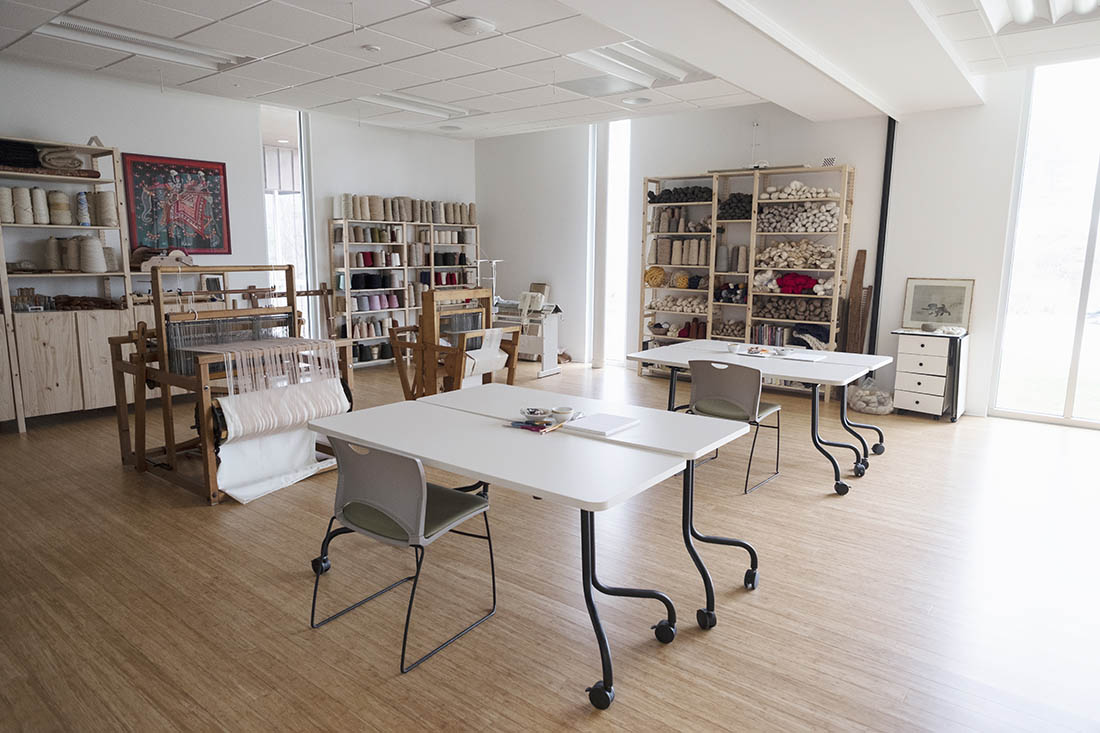
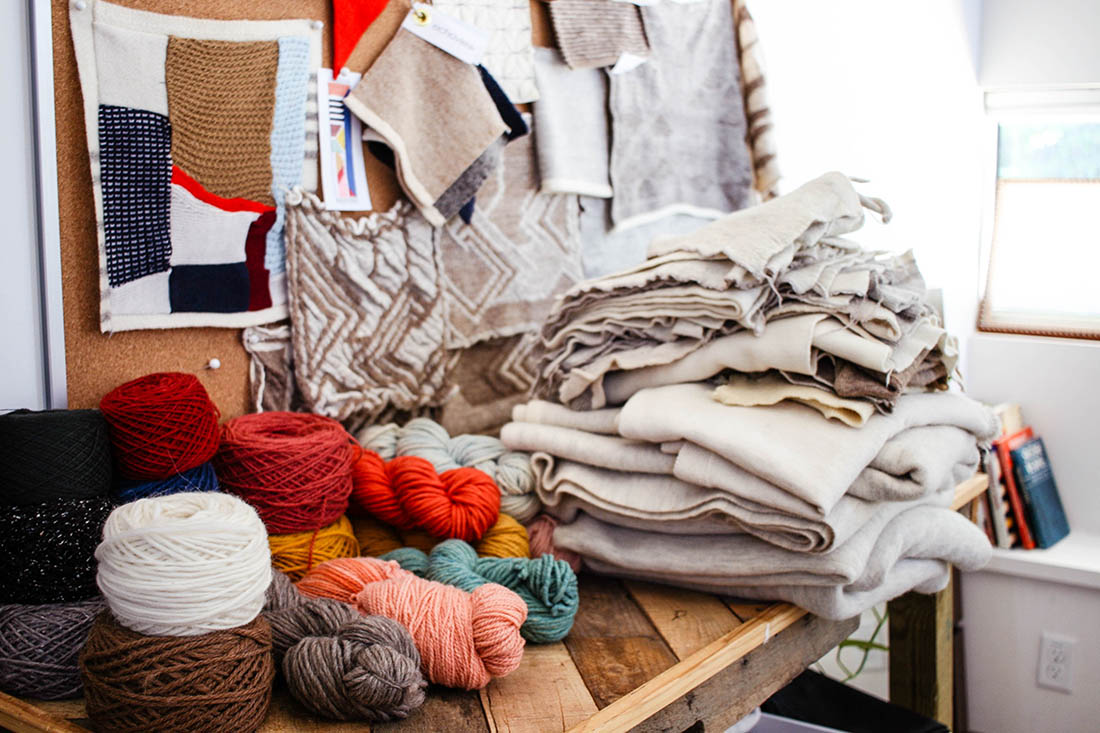
Echoview hopes to pass some of that bottom line to their customers, too. “Our main goal is for our customers to feel warm and invited, like they are a part of our family, whether locally or on the web,” Casey-Gouin says. The company achieves this through their marketing as well as frequent craft nights, tours, and classes hosted at the mill.
Dedication to sustainability
In addition to providing consumers with locally sourced products, Echoview also encourages consumers to adopt the same sustainability mentality as the company. “Our secondary goal is for our customers to take part in the larger movement of sustainability by giving them access to locally made and sustainable yarns and encouraging them to make, mend, and care for their own clothing,” Casey-Gouin says. Echoview hosts workshops on topics like natural dyeing and mending to give customers the tools and knowledge they need.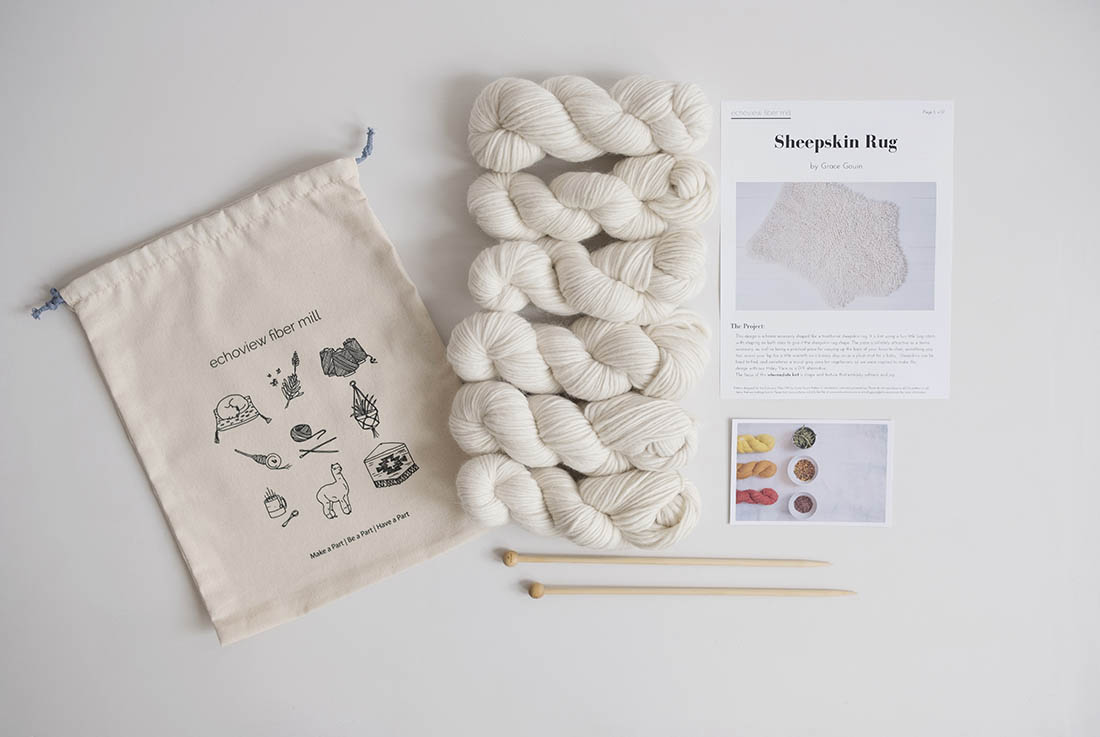
Echoview’s commitment to sustainability can be seen in every part of the business, from fiber sourcing to choosing items to sell in the shop. The company’s facility is even Gold LEED certified. “This is the only environment we have,” Casey-Gouin says. “It is up to companies and individuals to make good choices for the benefit of all living things and future generations, not simply buying whatever we want or only paying attention to our profit margins and leaving the mess for the future.”
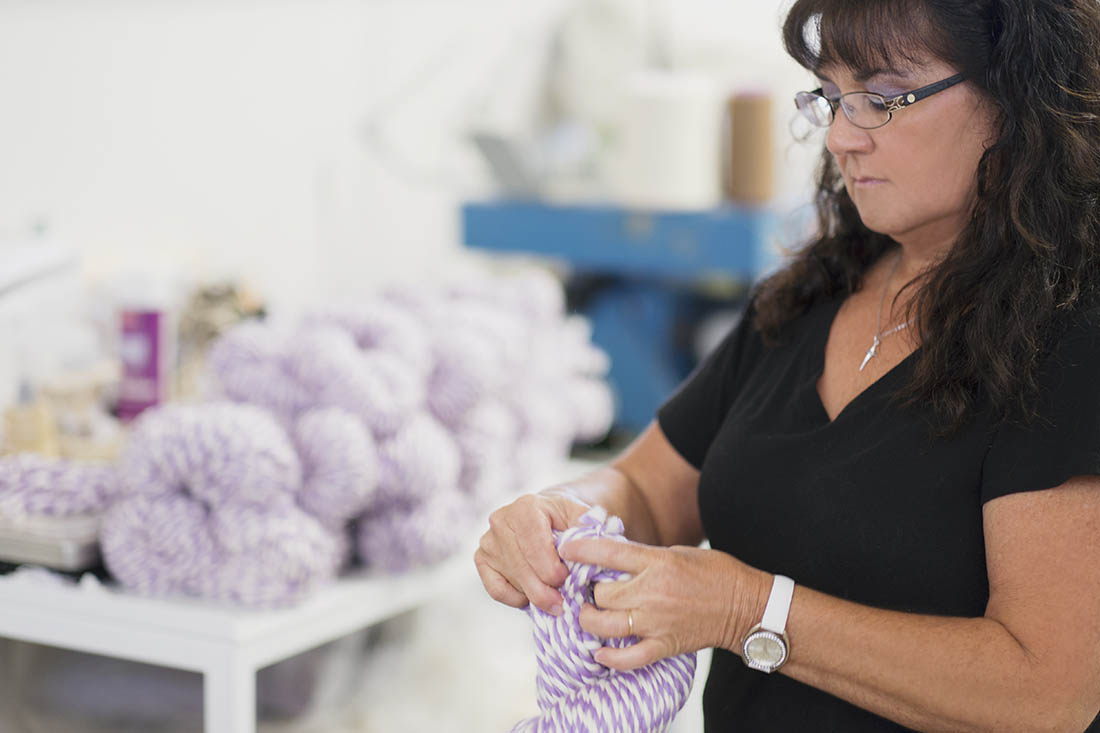
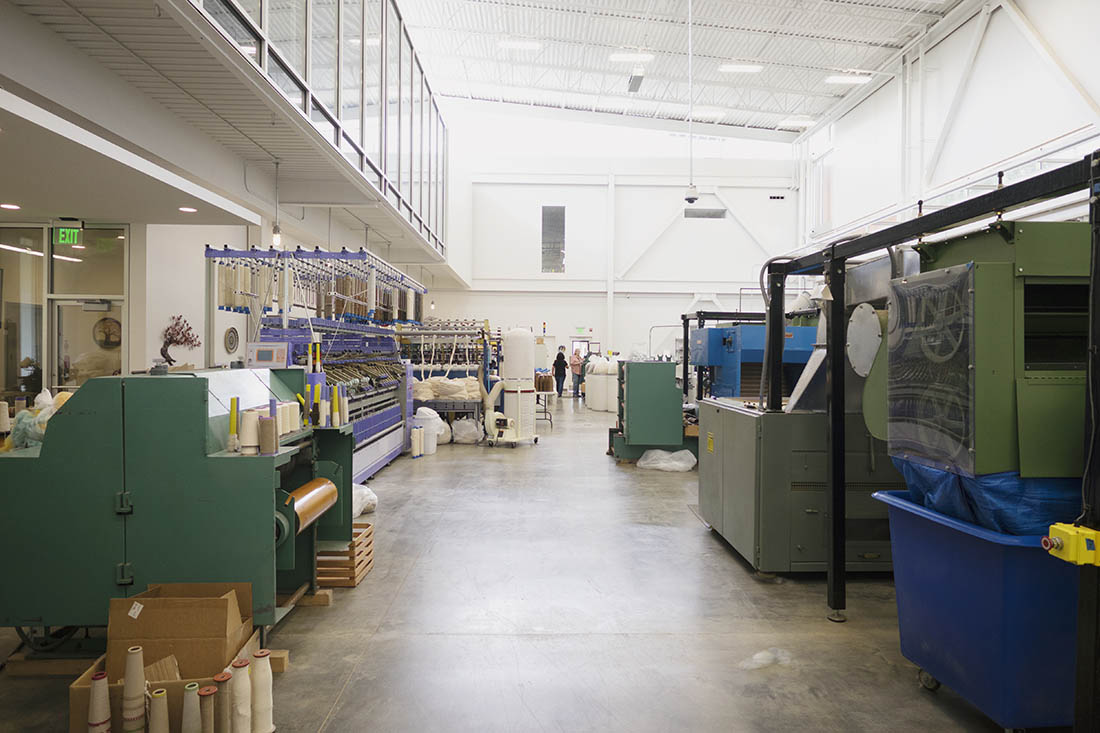
The importance of local
At a time when the meaning of local is changing many of our shopping habits within the craft industry, Echoview is trying to not only make it easy to buy local but also educate customers on some of the things that go along with it.“I think that one thing crafters can do to really support locally-grown fiber is to embrace quirks that come with smaller scale manufacturing,” Casey-Gouin says. “Be understanding when a farm-to-yarn operation like ours has a little hay or a few slubs in the skein. We do the best we can, but sometimes hay happens!”Even as the farm is phased out, Echoview will continue to use local sources for beautiful and interesting fibers to make new products. “Right now we are working on a yarn using recycled silk, and have just got a lead on a nettle fiber that we are going to experiment with,” says Casey-Gouin. “We’re also developing more products for the home, some simple apparel, and felt slippers.” Experimentation is always welcome and supported at Echoview. “The team that we have developed here feels like family,” says Casey-Gouin. “There is a sense of belonging working here, and we always receive encouragement and trust from Julie, our founder, when we want to try something new.” It’s this encouragement that will help Echoview continue to create beautiful products and support their local community.

Ashley Little
contributor
Ashley Little is a craft writer and editor living in Asheville, North Carolina. She has given up on reducing her yarn stash and refuses to feel guilty about it. You can see more of her work at thefeistyredhead.com.

Trackbacks/Pingbacks